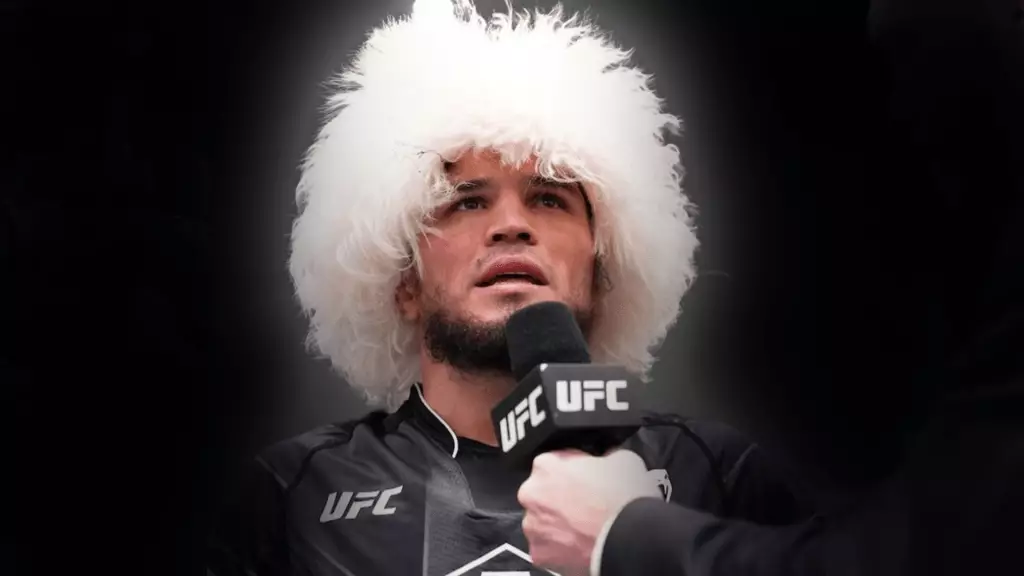Umar Nurmagomedov, an undefeated fighter in the MMA scene, has raised eyebrows with his outspoken claims regarding fellow bantamweight champion, Merab Dvalishvili. Nurmagomedov, currently holding an impeccable 18-0 record, believes that Dvalishvili is deliberately avoiding a title fight with him. This assertion follows Nurmagomedov’s impressive victory over Cory Sandhagen, earning him the No. 1 contender spot. While Nurmagomedov feels he has justifiably earned his shot at the title, Dvalishvili, who recently dethroned Sean O’Malley, seems to be patently dismissing that legitimacy.
This perceived avoidance raises questions about the champion’s commitment to defend his title against the top contenders. Nurmagomedov accused Dvalishvili of “playing games,” suggesting that not only is he evading a fight but is also leveraging the timeline of Ramadan—during which Nurmagomedov will not compete—to delay their potential matchup. As the dynamic unfolds, it paints Dvalishvili in an unflattering light, prompting discussions about the ethics surrounding matchmaking and fighter responsibility in the UFC.
Timing is crucial in MMA, particularly when one fighter is prepared to compete while the other might be stalling for personal or strategic reasons. Nurmagomedov is eager to remain active in the sport, even considering a grappling match in October as a means to stay sharp before the fasting month begins. His frustration is palpable as he expresses a desire to face Dvalishvili either before Ramadan or shortly afterward, indicating that he does not want to be sidelined while waiting for the champion to decide on the next steps.
As the bantamweight title picture becomes increasingly convoluted, Nurmagomedov’s readiness to compete offers a stark contrast to Dvalishvili’s apparent reluctance. The implications are significant; should Dvalishvili continue to sidestep a confrontation, it not only affects his own career trajectory but also the fighters looking to move up in the ranks. The champion’s choices reverberate throughout the division, creating a narrative where the legitimacy of title defenses comes under scrutiny.
Nurmagomedov’s comments regarding both Dvalishvili and O’Malley reflect a deeper analysis of their fighting styles and capabilities. By undermining O’Malley’s skill set, claiming he lacks grappling and wrestling acumen, Nurmagomedov seeks to establish a contrast with Dvalishvili, considered by him a more formidable adversary. However, by disparaging other fighters, Nurmagomedov may risk alienating potential opponents while also unnecessarily inflating his own profile in the process.
Nurmagomedov seems to recognize the skills of a fighter like Dvalishvili, indicating that he must be strategic and prepared for a vigorous contest. This can be viewed as a double-edged sword; while he admires Dvalishvili’s prowess, his criticisms may serve to distract from the nature of their rivalry should it eventually materialize. The bantamweight division now stands at a crossroads, with tensions escalating between two talented fighters, and the UFC’s top brass will need to consider how best to navigate these dynamics for the benefit of the sport and its fans.
The unfolding situation between Umar Nurmagomedov and Merab Dvalishvili serves as a stark reminder of the complexities in competitive sports. The interplay of strategy, timing, and the psychology of fear can shape not just individual careers but the future landscape of the division as well.

